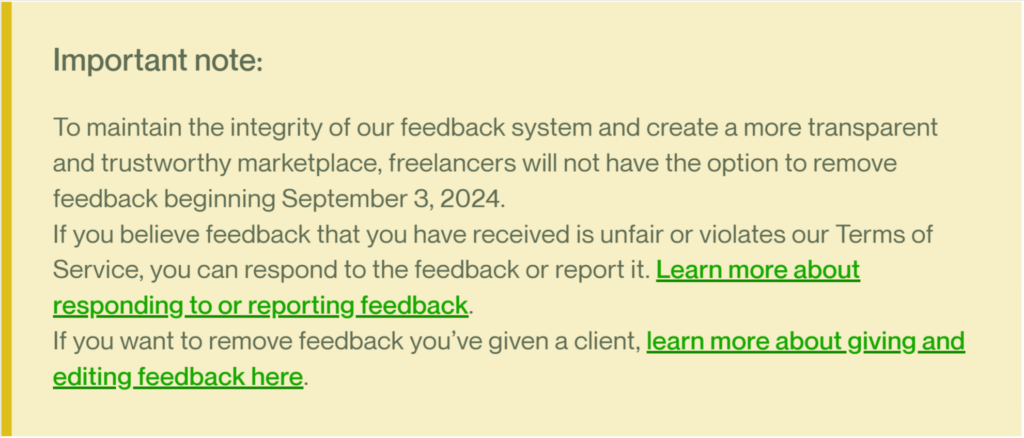Internet reviews have become essential to our decision-making process, influencing everything from where we dine to the freelancers we hire. However, this system has spiraled out of control, with both businesses and consumers exploiting it to the point where its reliability is highly questionable. This article explores the various ways in which the review system is being abused, the consequences of this abuse, and potential solutions to restore its integrity.
The Restaurant Industry: Begging for Stars
The restaurant industry is a prime example of how the review system is being misused. Many establishments plead with customers to leave glowing reviews, sometimes even offering discounts or freebies in exchange. Dropping QR codes on the table with a link to Google before you even have a chance to swallow the last bite and pay the bill. This practice has created a scenario similar to tipping, where businesses rely heavily on positive reviews without necessarily delivering the quality of service and food that merits such praise. The expectation of stellar reviews has overshadowed the importance of genuine feedback and accountability.
Service Providers: Demanding 5-Star Reviews
Other service providers have adopted similar tactics, demanding five-star reviews or subtly threatening customers with less pleasant experiences if they don’t comply. This practice undermines the credibility of reviews and places undue pressure on customers to leave positive feedback regardless of their true experience. The result is a distorted view of the service quality and a lack of accountability for providers. Have you experienced this from your plumber, painter, your delivery driver or someone else?
Upwork: A Case Study in Review Manipulation
The freelancing platform Upwork exemplifies how the review system can fail. After using Upwork to hire talent for over 11 years, we recently encountered a “Top Rated” designer who delivered terrible work. It’s not the first time this happened, but it was special. It was so egregious that we ended up canceling the project and crediting the client back on their account to save face and buy some time to do a resent. When we left an honest review reflecting our experience, we were astounded to discover that Upwork allows such top-rated freelancers to remove negative feedback to maintain their reputation. This policy, found in Upwork’s terms and conditions, undermines the purpose of reviews and strips clients of any leverage to seek redress for poor service.
While the product team may, in fact, have been well-intended. I find it shocking that they allowed such a manipulative system to be created in the first place. Of course, if a freelancer has a perfect rating, they want to maintain it. However, rather than an honest system of accountability, Upwork rigs its transparent review system in favor of a few people who will never learn the lesson of actually earning their perfect score vs. doing something poor, that has downstream impact on a business and then getting out of it by writing to the support team to have their bad deed erased from the record.
Link to Upwork’s Terms and Conditions
Apparently, the Upwork team got the memo. After an uproar from their hiring users, they have since changed course and will discontinue the allowance of feedback removal unless it violates the terms and conditions of how reviews can be left. Bravo. This is a company that listens, considers the right type of feedback (albeit overwhelming), and makes an appropriate adjustment to revert back to a system of integrity and transparency.

The Power of the “Karens”
On the flip side, there are individuals who leave bad reviews for petty or unreasonable reasons, often referred to as “Karens” online and across society. These reviews can severely damage a business’s reputation and are often used as a tool for blackmail, demanding compensation or changes that may not be warranted. Reviews should be open, honest, and transparent, reflecting true customer experiences. However, they have morphed into a battlefield where desperation and retaliatory tactics reign, making it arduous to discern genuine feedback from vindictive comments.
The Impact of Review Bombing
The issue extends beyond individual interactions. Some businesses employ bots to review bomb competitors, artificially dragging down their ratings. Amazon has grappled with this problem, implementing measures to detect and remove fake reviews, but the challenge persists. Such tactics hurt competitors and deceive consumers who rely on reviews to make informed decisions.
In fact, on occasion, bad reviews may even happen by accident. Let’s look at the case of one of our agency clients. A law firm in Boston, Massachusetts. I remember a few years ago when a client, who had an otherwise stellar reputation, called us. He was distraught because his firm had just received a bad review on Google. And after checking the records, he could confirm the review he received was from someone who had never even been a client. Not this person or anyone that we could trace to this person. How could this happen? It took 2 years for us to get a response from Google and ultimately have the review removed after proving this person had no ties to the firm whatsoever.
Airbnb: Retaliatory Review Wars
Airbnb faces a similar dilemma, where disputes between hosts and guests frequently escalate into review wars. A negative review from a disgruntled guest can spark a retaliatory response from the host, resulting in a spiral of mutual destruction. Airbnb took steps to diminish the retaliatory strikes and counterstrikes by hiding reviews until both parties have written theirs respectively. But based on conversations, intervention, overall communication, and possible remediation, Take it from me, as a former Airbnb Superhost, a frequent Airbnb Guest, and a hospitality tech founder who operated on the front lines of helping hosts improve the quality of the guest experience, it’s pretty easy to predict what’s going to happen before the stay is even over. These conflicts highlight the absence of effective dispute-resolution mechanisms and the overreliance on public shaming through reviews.
The Need for Resolution Mechanisms
What happened to resolving issues privately and constructively? Is this mess a result of society’s collective desire to always be in the spotlight? In its current state, the review system fosters public disputes rather than facilitating genuine feedback and resolution. At the heart of every bad review is a person looking for a different outcome than they experienced. To address these issues, several solutions could be considered:
- Verified Purchases and Experiences: Ensuring that only those who have genuinely purchased or experienced the service can leave reviews.
- Time-Limited Review Windows: Allowing reviews only within a specific timeframe post-purchase to prevent retaliatory or overly delayed feedback.
- Mediation Services: Implementing third-party mediation to resolve disputes privately before escalating to public reviews.
- Review Moderation: Using AI and human moderators to identify and remove fake or abusive reviews.
- Balanced Review Incentives: Offering incentives for honest feedback, not just positive reviews, to encourage transparency.
The Importance of Customer Feedback
Collecting feedback from customers about their experiences is crucial for businesses. It provides valuable insights into what is working well and what needs improvement. By listening to customer feedback, companies can shape their services and enhance quality, ultimately leading to higher customer satisfaction and loyalty. Feedback helps businesses stay competitive and innovate based on real-world user experiences.
However, this practice has gone too far. Why do I need to rate the experience of my Amazon driver simply putting packages in the delivery room at my building? Or why do I receive 17 text messages within seconds of getting off the phone, asking me to rate a three-minute conversation with customer service? Examples of companies overdoing feedback requests include ride-sharing services like Uber and Lyft asking for ratings after every ride, fast-food chains like McDonald’s and Starbucks prompting for survey completions after each purchase, and online retailers like eBay requesting feedback for every transaction. These constant prompts can lead to feedback fatigue, where customers become annoyed or indifferent to providing meaningful responses. Surely, I’ll call if there is a problem.
Conclusion
The current state of the Internet review system is deeply flawed, with both businesses and consumers abusing it in various ways. From restaurants and service providers begging for five-star reviews to individuals leaving vindictive feedback, the integrity of reviews has been compromised. By implementing verified reviews, time-limited review windows, third-party mediation, moderation, and balanced incentives, we can work towards restoring trust in the review system. What are your thoughts on the current state of online reviews and feedback? Do you love it? Hate it? Do you have ideas and suggestions on how to improve it? Let me know in the comments.
And oh, by the way, would you mind leaving me a review of this article?
Keep Reading
Want more? Here are some other blog posts you might be interested in.
The best founders disappoint people quickly by saying no, cutting scope, and keeping promises. Learn how to build focus, avoid scope creep, and ship work that earns trust.
You still need SEO. You still need demand gen. You still need a site that converts. None of that went away. ...
An unusual trend has crept into agency life: more small and midsize business clients seem to treat paying invoices as optional. ...
For founders and growing companies
Get all the tips, stories and resources you didn’t know you needed – straight to your email!



